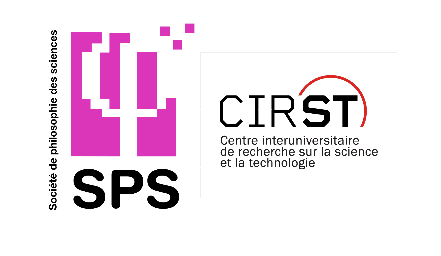Carnap's Conventionalism in Geometry
1 : University of British Columbia
Carnap suggests that Kant's division of judgments into synthetic a priori and other variants of synthetic/analytic and a priori/a posteriori judgments can be replaced by the conventional and the empirical. Carnap often justifies his conventionalism with respect to language and logic by analogy to conventionalism in geometry.
Thomas Mormann's contention is that, whatever may be true about conventionalism in general, the mathematical discipline of differential topology does not support conventionalism in geometry. There are higher-level objections to Carnap's conventionalism in geometry, for example by Quine, who considers it incompatible with holism, and by Ryckman or Friedman, who consider it incompatible with Einstein's theory of relativity. Mormann argues that the mathematical problems of Carnap's account render those higher-level objections unnecessary. We raise objections to Mormann's argument and claim that, whatever else may be said about conventionalism in geometry, it does not run afoul of differential topology.
To save conventionalism in geometry, we must introduce a topological boundary or (Carnap's term) a limitation.There is an obscurity in Carnap's work to what extent the limitations of scientific observation enter into which questions it is in principle possible to answer. To pose a question, Carnap says in the Aufbau, "is to give a statement together with the task of deciding whether this statement or its negation is true." If the task is in principle impossible to carry out, which it very well may be (unless in principle means just the opposite of in practice), then it remains open whether the question is properly posed.
Thomas Mormann's contention is that, whatever may be true about conventionalism in general, the mathematical discipline of differential topology does not support conventionalism in geometry. There are higher-level objections to Carnap's conventionalism in geometry, for example by Quine, who considers it incompatible with holism, and by Ryckman or Friedman, who consider it incompatible with Einstein's theory of relativity. Mormann argues that the mathematical problems of Carnap's account render those higher-level objections unnecessary. We raise objections to Mormann's argument and claim that, whatever else may be said about conventionalism in geometry, it does not run afoul of differential topology.
To save conventionalism in geometry, we must introduce a topological boundary or (Carnap's term) a limitation.There is an obscurity in Carnap's work to what extent the limitations of scientific observation enter into which questions it is in principle possible to answer. To pose a question, Carnap says in the Aufbau, "is to give a statement together with the task of deciding whether this statement or its negation is true." If the task is in principle impossible to carry out, which it very well may be (unless in principle means just the opposite of in practice), then it remains open whether the question is properly posed.


